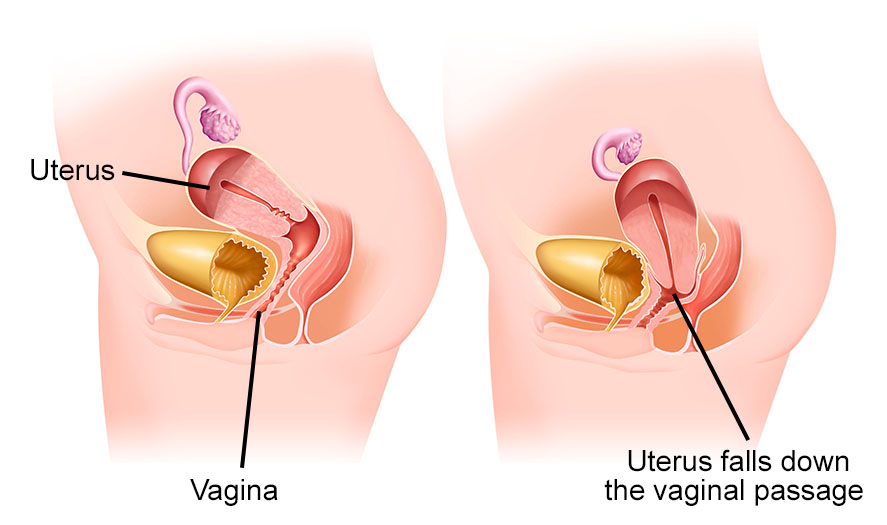Does Prolapsed Uterus Go Back To Normal? Know More!
Pelvic organ prolapse can affect both males and females, but it is predominantly common in womenfolk. The physical pressure and straining of pregnancy and childbirth can deteriorate or impair the muscles and tissues of the pelvic floor, particularly in females who have had numerous kids.
Causes of prolapsed uterus
The following disorders can cause uterine prolapse:
- Pregnancy, childbirth and complicated (or normal) vaginal delivery
- Forfeiture of tissue and tone, and/or loss of natural estrogen after menopause
- Long-lasting cough (e.g., from asthma or bronchitis), which results in amplified stomach pressure
- Being overweight or heavy, which generates supplementary strain on the pelvic muscles
- Major surgery in the pelvic region, which can deteriorate tissues in the pelvis
- Smoking, which can impair tissues and result in chronic cough
- Excess/inappropriate weight lifting, which generates intra-abdominal pressure
Symptoms of prolapse
A minor prolapse might not cause symptoms. In fact, in several cases, a lady’s doctor might discover prolapse during a routine pelvic examination. If you do have symptoms, they might include: a sensation of fullness, heaviness, or protruding in your pelvis (several females designate this as a feeling of sitting on a trivial ball)
- Feeling that something is tumbling out of your vagina
- Trouble with urination or defecation
- Chronic constipation
- Low back aching
- Agonizing sexual intercourse and/or bleeding with intercourse
- Discomposure while walking
If you wonder does prolapsed uterus go back to normal, it is imperative to know that while prolapse is common, it isn’t always a chief health concern and it doesn’t always get shoddier. In some females, it can get better with time.











